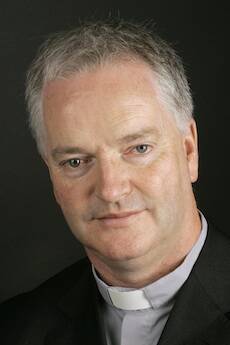By Vatican standards, it is a small revolution: A pontifical council is holding a major assembly without prepared speeches. Participants in the Pontifical Council for Culture’s mid-November plenary meeting have been told to prepare for free discussion instead. The theme of the encounter is communication, and apparently the old model—hours of reading prepared texts—just was not working anymore. Those who have endured Vatican meetings will appreciate just how radical this innovation really is. Reading speeches has been the main activity at Roman Curia assemblies for as long as anyone can remember. There is no prize for brevity, either. Outside participants, especially those from the United States, have complained that such overly structured meetings left little or no time for significant discussion. Their protests are now being taken seriously, aided in part by the digital media explosion. Msgr. Paul Tighe, right, secretary of the communications council, said bluntly in an article earlier this year that the church relies too much on texts, often using a vocabulary that is “unintelligible and off-putting” to its audiences.
A Vatican Meeting Without Speeches
Show Comments (
)
Comments are automatically closed two weeks after an article's initial publication. See our comments policy for more.
The latest from america
Los Angeles Archbishop José H. Gomez was one of several community leaders who joined to open the Family Assistance Program, aiding those affected by recent ICE raids.
On Friday, Pope Leo XIV issued a statement on the theme "Migrants, missionaries of hope."
In Steven Spielberg’s “Close Encounters of the Third Kind,” an ordinary electrician has a transcendent encounter—with U.F.O.s, not God.
Many of my acquaintances have given up “reading about something that didn't happen.” But fiction has long-term and concrete value, both mentally and socially.








